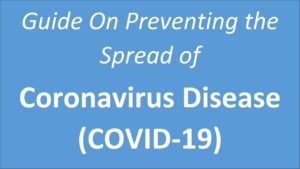Good hair growth is a sign of a good health. On average, hair tends to grow between 0.5 and 1.7 centimeters per month. This is equivalent to around 0.2 to 0.7 inches.
Bone marrow, which is the soft substance present inside the bones, is the only part of the body that grows faster than hair.
Like any other part of your body, hair needs a variety of nutrients to be healthy and grow.
In fact, many nutritional deficiencies are linked to hair loss.
While factors such as age, genetics and hormones also affect hair growth, optimal nutrient intake is key.
Stages of Hair Growth
The stages of hair growth are as follows:
- Each follicle contains a hair root, which is made of cells of protein.
- As blood circulates around the body, it delivers oxygen and nutrients to the protein cells, which they need to multiply.
- The protein cells multiply, they build hair, which pushes up through the skin.
- The hair grows out of the skin, it passes an oil gland. This lubricates the hair with the oil it needs to stay soft and shiny.
- By the time the hair is long enough to come through the skin, it is dead. As a new hair grows underneath, it pushes the dead hair out of the skin. The hair then falls out or is shed.
Below are 5 vitamins that may be important for hair growth.
Vitamin A
All cells need vitamin A for growth. This includes hair, the fastest growing tissue in the human body.
Vitamin A also helps skin glands make an oily substance called sebum. Sebum moisturizes the scalp and helps keep hair healthy.
Diets deficient in vitamin A may lead to several problems, including hair loss.
While it’s important to get enough vitamin A, too much may be dangerous. Studies show that an overdose of vitamin A can also contribute to hair growth.
Sweet potatoes, carrots, pumpkins, spinach, and kale are all high in beta-carotene, which is turned into vitamin A.
Vitamin A can also be found in animal products such as milk, eggs, and yogurt. Cod liver oil is a particularly good source.
Your hair needs vitamin A to stay moisturized and grow. Good sources include sweet potatoes, carrots, spinach, kale, and some animal foods.
Vitamin B Family
One of the best-known vitamins for hair growth is a B-vitamin called biotin.
Studies link biotin deficiency with hair loss in humans.
Although biotin is used as an alternative hair-loss treatment, those who are deficient have the best results.
However, deficiency is very rare because it occurs naturally in a wide range of foods.
There’s also a lack of data about whether biotin is effective for hair growth in healthy individuals.
Other B-vitamins help create red blood cells, which carry oxygen and nutrients to the scalp and hair follicles. These processes are important for hair growth.
You can get B-vitamins from many foods, including whole grains, almonds, meat, fish, seafood and dark, leafy greens.
Additionally, animal foods are the only good sources of vitamin B12. So if you’re following a vegetarian or vegan diet, consider taking a supplement.
B-vitamins help carry oxygen and nutrients to your scalp, which aids in hair growth. Whole grains, meat, seafood, and dark, leafy greens are all good sources of B-vitamins.
Vitamin C
Free radical damage can block the growth and cause your hair to age.
Vitamin C is a powerful antioxidant that helps protect against the oxidative stress caused by free radicals.
In addition, your body needs vitamin C to create a protein known as collagen — an important part of the hair structure.
Vitamin C also helps your body absorb iron, a mineral necessary for hair growth.
Strawberries, peppers, guavas and citrus fruits are all good sources of vitamin C.
Vitamin C is needed to make collagen and can help prevent hair from aging. Good sources include peppers, citrus fruits, and strawberries.
Vitamin D
Low levels of vitamin D are linked to alopecia, a technical term for hair loss.
Research also shows that vitamin D may help create new follicles — the tiny pores in the scalp where new hair can grow.
Vitamin D is thought to play a role in hair production, but most research focuses on vitamin D receptors. The actual role of vitamin D in hair growth is unknown.
That said, most people don’t get enough vitamin D and it may still be a good idea to increase your intake.
Your body produces vitamin D through direct contact with the sun’s rays. Good dietary sources of vitamin D include fatty fish, cod liver oil, some mushrooms, and fortified foods.
Vitamin D’s actual role in hair growth is not understood, but one form of hair loss is linked to deficiencies. You can increase vitamin D levels through sun exposure or by eating certain foods.
Vitamin E
Similar to vitamin C, vitamin E is an antioxidant that can prevent oxidative stress.
In one study, people with hair loss experienced a 34.5% increase in hair growth after supplementing with vitamin E for 8 months.
The placebo group had only a 0.1% increase.
Sunflower seeds, almonds, spinach and avocados are all good sources of vitamin E.
Suggested Multivitamin Brands For Hair Growth
Hairfluence (USA) Order Now
Organic Hair Skin and Nails Vitamins for Women Order Now
Biotin Order Now
Conclusion
All of the above vitamins are essential for good hair growth. Balance diet always keeps everything good. If you like this article do not forget to comment and share it with your friends.


